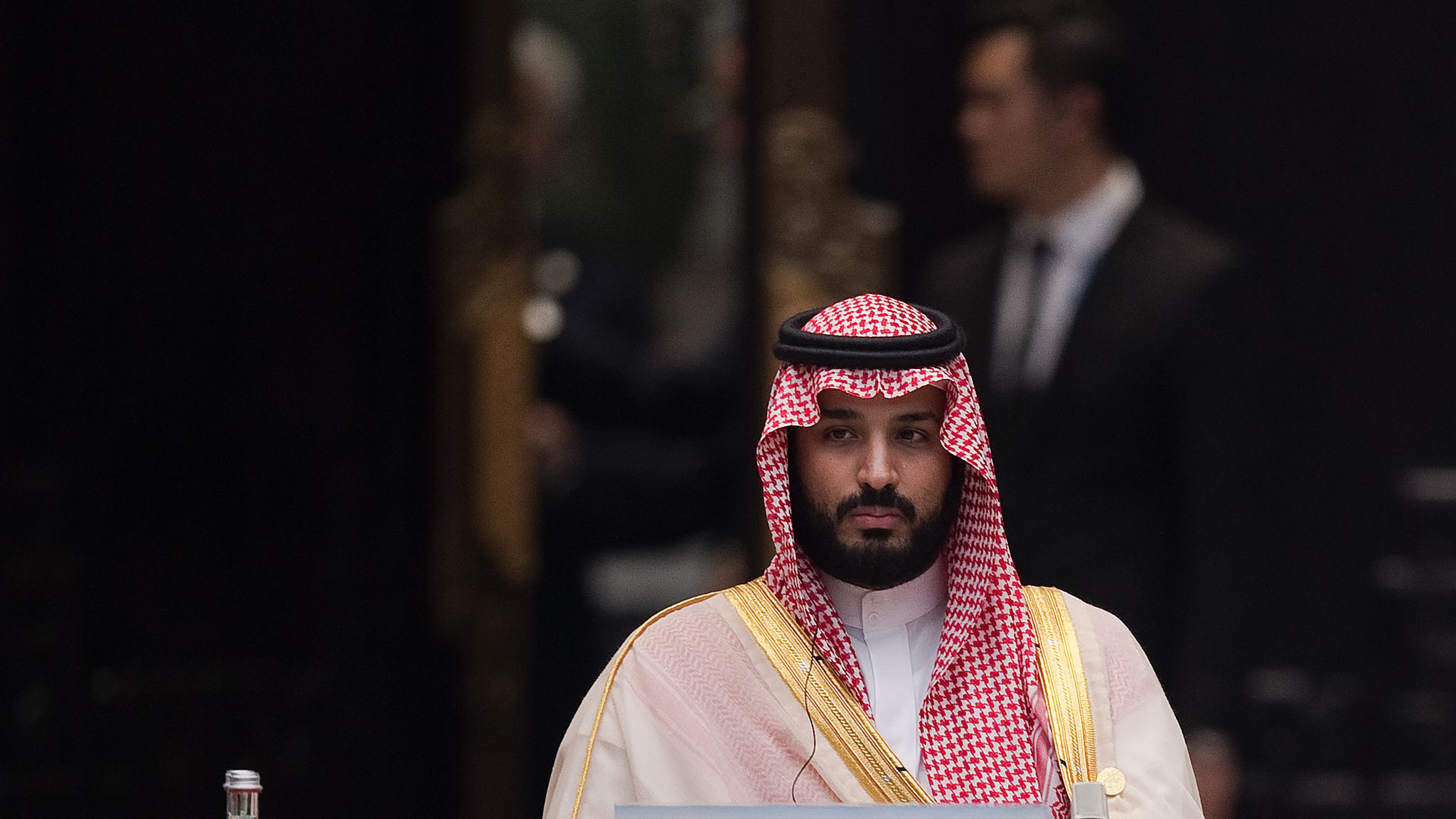The euphoria of some journalists who flew to Riyadh to meet and interview the rising prince is fading and giving way to a new image. After he was dubbed a great reformer, now he is better known as a villain and a dictator.
MBS has defied his protectors in Washington by ignoring President Joe Biden’s call to increase oil production, and save the US and the world from an imminent economic crisis. While the world continues to suffer under soaring energy prices, MBS’ western partners, sometimes referred to as allies, once again failed to understand him.
With more than half a dozen books written about him by well-known journalists, policymakers chose to ignore his most obvious characteristic - namely treachery.
The background story
The Russian invasion of Ukraine - rather than the 2018 murder of journalist Jamal Khashoggi by Saudi operatives - is the background story to the recent vilification of MBS.
In 2018 he was confirmed by a CIA report as the top official who ordered the murder of Khashoggi, but the US and its western allies refrained from imposing sanctions on Saudi Arabia’s future king, hoping that engagement with the rising ruler was better than ostracising him.
But now the Saudi crown prince is the villain, an untrustworthy dictator who refuses to abide by the old bargain in which the US provided protection in return for subservience.
MBS’s mistake is to pursue his own national interest, namely replenishing the Saudi coffers with much-needed oil revenues and benefitting from the rise in energy prices, while also being exposed to global inflation as it continues to rely on a wide range of essential imported goods, now at premium prices.The Saudi crown prince is not someone who thinks in terms of a balance between loss and gain. He is determined to gain at all costs, even at the expense of his overlords in Washington.
In a recent article in the WSJ, MBS is described as exhibiting infantile tendencies as he welcomed US national security envoy, Jake Sullivan, dressed in shorts and yelled at him when he uttered the name of Khashoggi.
Previously, his attire would have been praised for being casual and modern, reflecting his reformist agenda and commitment to youth culture. Now the same attire is interpreted as a sign of disrespect and childishness.
This piece was followed by another blunt call in the Chicago Tribune to "leave Saudi Arabia to the wolves".
I wonder who the wolves are!
Elizabeth Shackelford, an ex-diplomat and think tank fellow, makes the case for abandoning the crown prince to face an uncertain future. She reminded American policymakers of Saudi Arabia’s dark past, invoking the usual US grievances. From religious radicalism to discrimination against women, the author abandoned all diplomacy and encouraged her country to shun MBS.
MBS’ main sin is ignoring US interests and refraining from openly condemning Putin’s invasion of Ukraine. If there is any world leader that MBS respects and cherishes to the extent of modelling himself in his image, it is the Russian president, after Donald Trump of course.
The forgotten history
Let’s not forget that Saudi Arabia’s previous excesses - now considered unacceptable in US media and think tank circles - were not only tolerated but also empowered and encouraged by US foreign policy.
Above all its religious extremism was an asset that the US allowed to flourish in order to defeat a greater evil, namely the Soviet Union, and anti-imperialist sentiments across the Muslim world.
It is in the very nature of dictators to be untrustworthy and their subservience to their protectors and enablers is usually transient
This is a history that is now conveniently forgotten; journalists chose to ignore it when appealing to their leaders to change course and not only condemn MBS but also abandon him forever.
The US until recently was a strong believer in the misguided wisdom of using authoritarian rulers to defeat dictators.
MBS was previously considered an authoritarian ruler who was not only tolerated but also commended for his so-called liberal reforms. Journalists who met him constantly reminded us that he should not be judged by the standards of democrats or democracy.
He needed to be understood as a young reformer trying to modernise a conservative and radical country, albeit by detaining hundreds of activists, and executing many others - the latest round of mass executions took place recently while British Prime Minister Boris Johnson visited Saudi Arabia.
The Machiavellian prince
But the lines separating authoritarian rulers and dictators are often blurred. Only six years after he became the top man in the Saudi ruling hierarchy, MBS has been condemned as the Saudi dictator, who stabs the US in the back and fails to honour the old bargain - unlimited oil in return for security.
History repeats itself. As long as dictators are subservient to US interests, they are not only tolerated but empowered, literally with weapons that they use against their own people and their neighbours.
MBS is the latest addition to the long list of dictators that the US and its western allies had supported for decades and continue to support until the present day. But it is in the very nature of dictators to be untrustworthy and their subservience to their protectors and enablers is usually transient.
Their loyalty is never to be taken for granted as they are only loyal to themselves. Could the US have miserably failed to see the Machiavelli in MBS?
Source: Middle East Eye



























